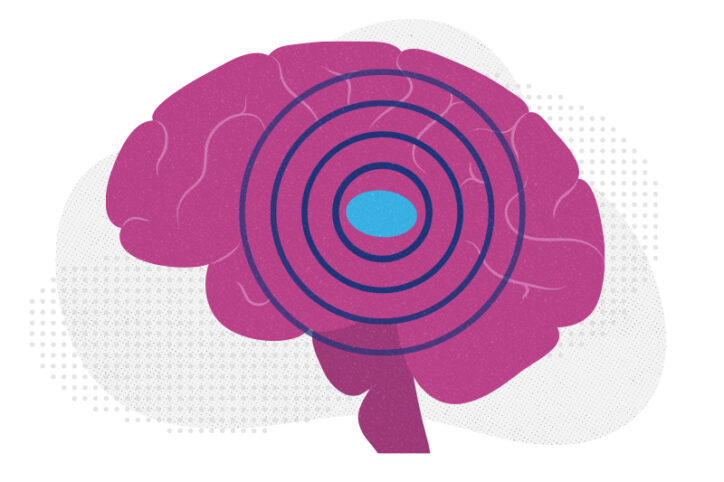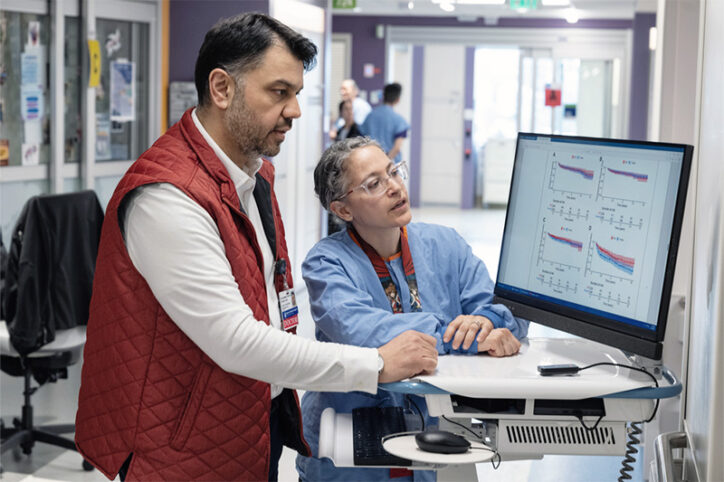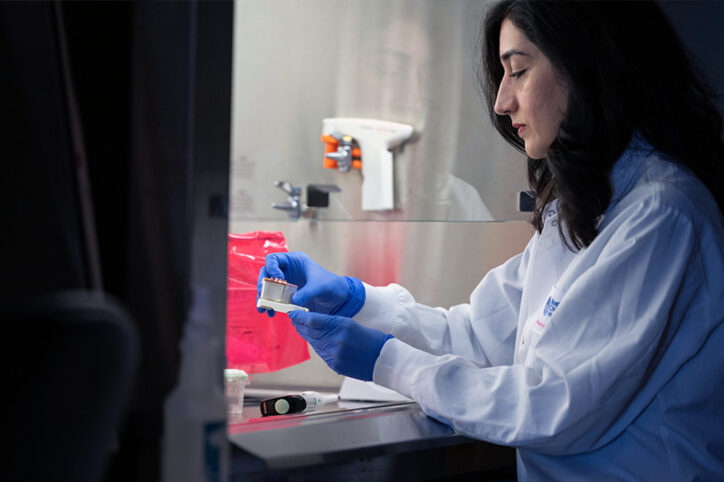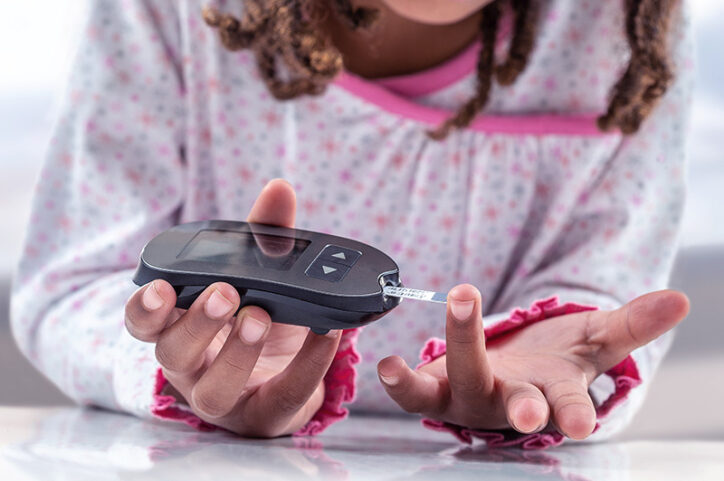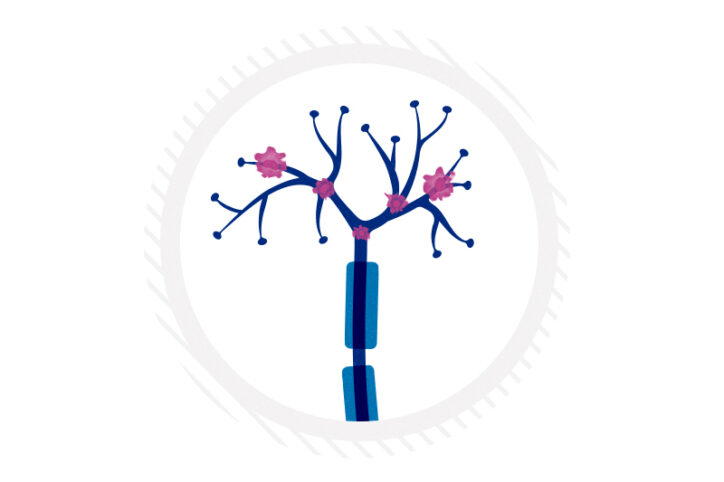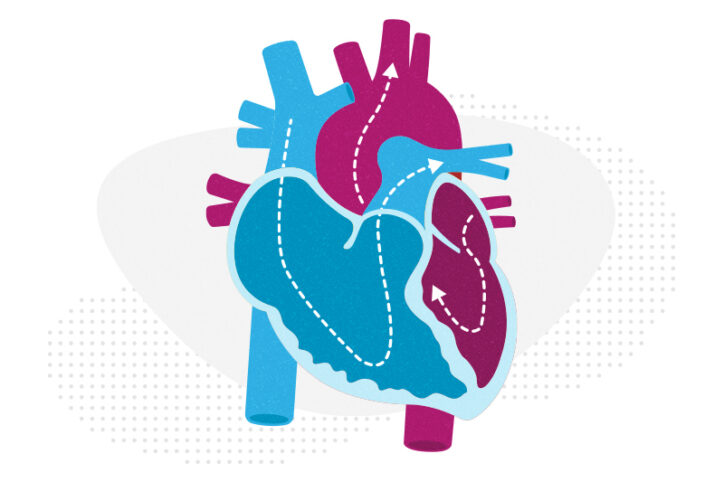The thalamus: A potential therapeutic target for neurodevelopmental disorders
Years ago, as a neurology resident, Chinfei Chen, MD, PhD, cared for a 20-year-old woman who had experienced a very small stroke, affecting only the thalamus. “It was so tiny that she wouldn’t have noticed any symptoms had the stroke been in any other area of the brain,” says Chen, who is now an investigator ... Read More about The thalamus: A potential therapeutic target for neurodevelopmental disorders
Partnering diet and intestinal microbes to protect against GI disease
Despite being an everyday necessity, nutrition is something of a black box. We know that many plant-based foods are good for us, but we don’t always know why. Our intestinal microbiome, which helps break down these foods once we consume them, is another black box. What role do our gut bacteria play? Seth Rakoff-Nahoum, MD, ... Read More about Partnering diet and intestinal microbes to protect against GI disease
Past patient outcomes could help single-ventricle surgery decisions
When considering whether a child who has a single-ventricle heart defect would benefit more from biventricular repair or the Fontan procedure, heart specialists have lacked a key tool to guide them: data that shows possible long-term health risks of each surgical option. But Boston Children’s heart specialists — who perform biventricular repair more often than any other pediatric hospital — ... Read More about Past patient outcomes could help single-ventricle surgery decisions
Pediatric high-grade gliomas: Research reveals effective targeting with avapritinib
Pediatric high-grade gliomas, particularly H3K27M diffuse midline gliomas (DMG), are aggressive malignant brain tumors with a poor prognosis. Previous research suggests that platelet-derived growth factor receptor alpha (PDGFRA) appears to play a multifaceted role in the pathogenesis of both adult and pediatric high-grade gliomas. Not only are genetic alterations of PDGFRA common in patients with ... Read More about Pediatric high-grade gliomas: Research reveals effective targeting with avapritinib
A better treatment for endometriosis could lie in migraine medications
Endometriosis is a common, mysterious, often painful condition in which tissue similar to the uterine lining grows outside the uterus, forming lesions in locations such as the fallopian tubes, ovaries, and pelvis. These lesions can cause severe pain during periods, heavy menstrual bleeding, pelvic or abdominal pain, and sometimes painful bowel movements and urination. Existing ... Read More about A better treatment for endometriosis could lie in migraine medications
Modeling urinary tract disorders on a chip: Zohreh Izadifar
When a new tissue sample arrives from the Department of Urology, the Boston Children’s Hospital lab of Zohreh Izadifar, PhD springs into action. The tissue, from a child with urinary tract pathology, is whisked into the tissue culture room. Under a hood, lab members Dasvit Shetty, PhD, and Gretchen Carpenter, MSc, carefully isolate the cells ... Read More about Modeling urinary tract disorders on a chip: Zohreh Izadifar
A surprising link between Crohn’s disease and the Epstein-Barr virus
Crohn’s disease, a debilitating inflammatory bowel disease, has many known contributing factors, including bacterial changes in the microbiome that foster an inflammatory environment. Now, for the first time, Crohn’s disease been tied to a virus — specifically, Epstein-Barr virus (EBV), best known for causing infectious mononucleosis (mono). Researchers had already observed increased levels of EBV ... Read More about A surprising link between Crohn’s disease and the Epstein-Barr virus
Addressing food insecurity and nutrition challenges in pediatric type 1 diabetes care
Managing type 1 diabetes can be overwhelming for children and families. As children learn to live with the disease, many cut back on visits to their nutritionists. Others face barriers like food insecurity that make it difficult to maintain a balanced diet. And without the proper professional support and access to healthy foods, children’s overall ... Read More about Addressing food insecurity and nutrition challenges in pediatric type 1 diabetes care
Could peripheral neuropathy be stopped before it starts?
An increase in high-fat, high-fructose foods in people’s diets has contributed to a dramatic increase in type 2 diabetes. This, in turn, has led to an increase in peripheral neuropathy — nerve damage, typically in the hands and feet — that causes weakness, loss of sensation and, in some, a stabbing, burning, or tingling pain. ... Read More about Could peripheral neuropathy be stopped before it starts?
It’s all in the PV loops: New analytical model could improve circulation assessments before heart surgery
The double-switch operation corrects the congenital reversal of the heart’s ventricles and its two main arteries. It’s a practical way of putting the ventricles into the position they belong so that children with congenitally corrected transposition of the great arteries (CC-TGA) can benefit from enhanced circulation. Surgery, though, doesn’t come without risks. Some children’s left ventricles — ... Read More about It’s all in the PV loops: New analytical model could improve circulation assessments before heart surgery


